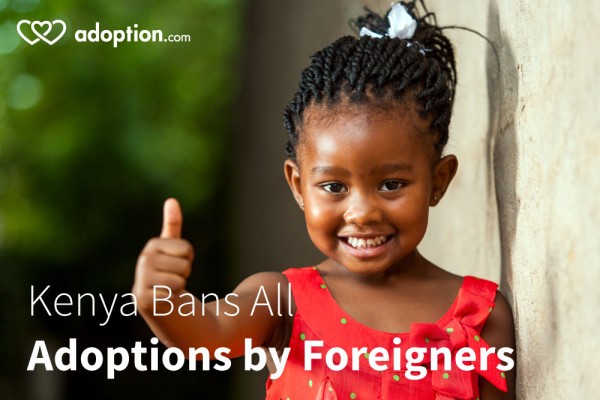According to a November 28th press release, “The U.S. Department of State is aware of reports in the Kenyan press on November 27 of a Kenyan government decision to ban adoptions of Kenyan children by foreigners. The U.S. Embassy in Nairobi is working through diplomatic channels to confirm these reports and gather information critical to U.S. adoption service providers and prospective adoptive families.”
According to many Kenyan news outlets, Kenyan Cabinet officials recently announced a ban on foreign adoptions on November 27, 2014 following concerning reports in the Global Report on Trafficking in Persons 2014, published by the United Nations Office on Drugs and Crime. The study cited Kenya as a “source, transit and destination country in human trafficking.” Kenya is also on the Tier 2 Watch List for non-compliance with minimum standards for the elimination of human trafficking, based on the 2014 US State Department report on trafficking in persons, also known as the TIPS report.
Despite the country’s status on these reports, Kenya is listed among the countries that are party to the Hague Adoption Convention. Becoming and remaining Hague-accredited and addressing child trafficking isn’t necessarily an indicator that adoptions are always completely ethical and the child is not a victim of trafficking, as evidenced by Kenya, which recently made global news for unethical adoption practices and high rates of human trafficking.
On May 29, 1993, the Hague Convention for International Law (HCIL) formed the Hague Adoption Convention. According to the HCIL website, the preamble and objective for the adoption convention are to regulate intercountry adoptions. They go on to state, “Intercountry adoptions shall be made in the best interests of the child and with respect for his or her fundamental rights and to prevent the abduction, the sale of, or traffic in children and each State should take, as a matter of priority, appropriate measures to enable the child to remain in the care of his or her family of origin.” The treaty outlines a set of guidelines that any country voluntarily accepts and agrees to follow to ensure safe and ethical adoptions of children.
The Hague Adoption Convention treaty stands as an important assurance for both countries with children needing homes, adoption agencies, and families hoping to build their families through international adoption. Hague accreditation ascertains the person being adopted is not, and has not, been a victim of human trafficking or unethical adoption practices. With a worsening incline of human trafficking reports, both nationally and globally, many countries, even, Hague accredited countries, are taking stricter actions to ensure the safety of their citizens.
As of October 2014, there are 77 countries, including the United States and the European Union that have signed the Hague Adoption Convention treaty and adopted legislation in their country to protect children and prevent illegal child trafficking. Most recently, in April 2014, the treaty became effective in Haiti as country officials demonstrated their country had adopted and passed legislation to follow the treaty’s objective and provisions. Public measures that the United States has taken to recognize, address, and prevent child and human trafficking can be found on many websites, including these:
- Child Welfare Response to Child Trafficking
- Department of Homeland Security-Blue Campaign
- National Center for Missing and Exploited Children
- National Human Trafficking Resource Center
- United Nations Office on Drugs and Crime
- U.S. Citizenship and Immigration Services, Victims of Human Trafficking & Other Crimes
With awareness increasing over the worsening child and human trafficking pandemic, regulated international adoption practices, national and international laws, and organizations in place to safeguard children and persons at high risk for human trafficking are more critical than ever. As a parent with small children, the thought of my child being taken from my home, my country, and trafficked is not only unacceptable, it is a parent’s worst nightmare. I highly respect and admire the HCIL, United Nations, United States, Kenyan, Haitian, and all other governments, organizations, and entities that do address these issues for taking quick, decisive actions to recognize and address child trafficking concerns and ensuring ethical adoptions within their respective countries and globally.
Are you and your partner ready to start the adoption process? Visit Adoption.org or call 1-800-ADOPT-98 to begin your adoption journey. We have 130+ years of adoption experience and would love to help you.

